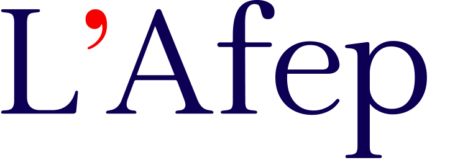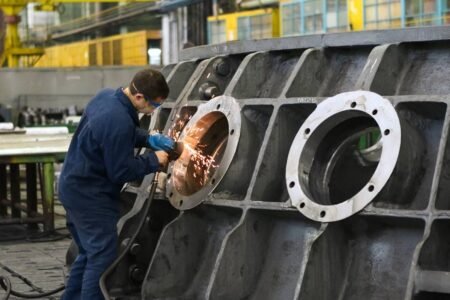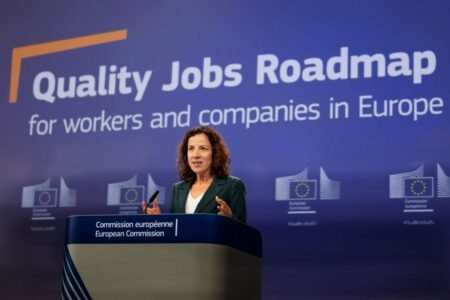The size of the gender pay gap, or the average difference between women and men’s hourly earnings across the EU, is 16.2% – according to the latest figures released today by the European Commission. The news comes ahead of the 2013 European Equal Pay Day on 28 February. The EU-wide event marks the extra number of days that women would need to work to match the amount earned by men: currently 59 days, meaning this year the day falls on 28 February. To help tackle the pay gap, the Commission is highlighting a series of good practices by companies in Europe which have taken on the problem. It is the third time the Equal Pay Day takes place at European level.
Advertisement
The Commission’s latest figures show an average 16.2% gender pay gap in 2010 across the European Union. They confirm a slight downward trend in recent years, when the figure was around 17% or higher the previous years.
The declining trend in the pay gap can be explained by the impact of the economic downturn on different sectors, whereby sectors dominated by male workers (such as the construction or engineering sector) have seen bigger drops in earnings overall. The change is therefore not generally due to improvements in pay and working conditions for women. At the same time, the share of men working part-time or under less well-paid conditions has increased in recent years.
The Commission says it wants to support employers in their efforts to tackle the gender pay gap. The “Equality Pays Off” project aims to make companies more aware of the “business case” for gender equality and equal pay. With the challenges of demographic change and increasing skill shortages, the initiative aims to provide companies with better access to the labour force potential of women. It includes training activities, events and tools for companies to address the pay gap. The project also aims to help reach the Europe 2020 Strategy target of raising the employment rate to 75% – for which greater participation of women in the labour market is essential.
Examples of good practices by companies seeking to tackle the pay gap include:
- German media firm Axel Springer AG launched the “Chancen:gleich!” (Opportunities:Equal!) programme in 2010 with the objective of increasing the numbers of female managers to 30% of the company’s management within 5-8 years.
- Kleemann Hellas SA, a Greek lift producer, aims to increase the number of women in sales and technical support, breaking stereotypes and reducing gender segregation. The “Diversity and Gender Equality” project increased female presence in the sales department from 5% in 2004 to 30% in 2012.
- Lithuanian mobile communications company Omnitel’s project “Creating a family friendly work environment in the company” aims to make work-life balance part of the organisational culture by offering flexible working possibilities to their staff. This has increased the proportion of female managers.
- IBM Germany’s “German Women’s Leadership Council” seeks to encourage women to take up a career in the IT industry by providing personal and cyber mentoring to students in schools. It also offers mentoring to young colleagues pursuing a management or specialist career.
Background
One of the events under the “Equality Pays Off” project is a “Business Forum” on 21 March 2013 in Brussels for 150 companies from all over Europe to exchange experiences in fostering gender equality, in particular tackling the causes of the gender pay gap.
The Commission is currently preparing a report on the application of the Equal Pay Directive 2006/54/EC. The report will focus in particular on assessing the application of the provisions on equal pay in practice. It will include an overview of the landmark EU case-law on equal pay. It will also include non-binding guidance on gender-neutral job evaluation and job classification systems. The report is scheduled for adoption in summer of 2013.
The Commission wants to strengthen collaboration with the Member States that organise their own national equal pay days. Member States’ representatives and stakeholders involved in the organisation of these equal pay days will have the opportunity to discuss this issue in an exchange of good practices which will be held in June 2013 in Estonia.
Gender pay gap – Commission website
Source: Eurostat 2010, except for Greece: 2008
Source: European Commission







